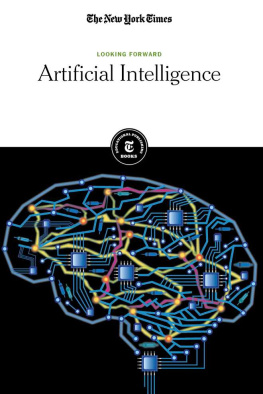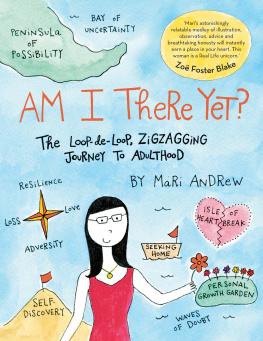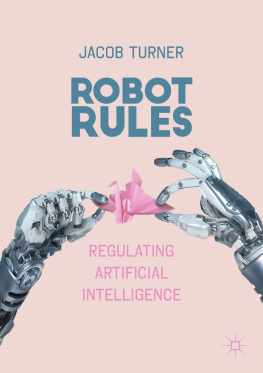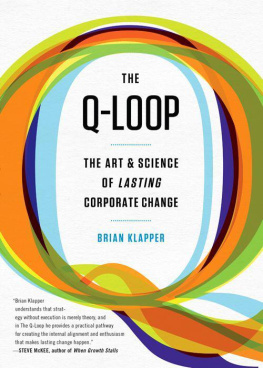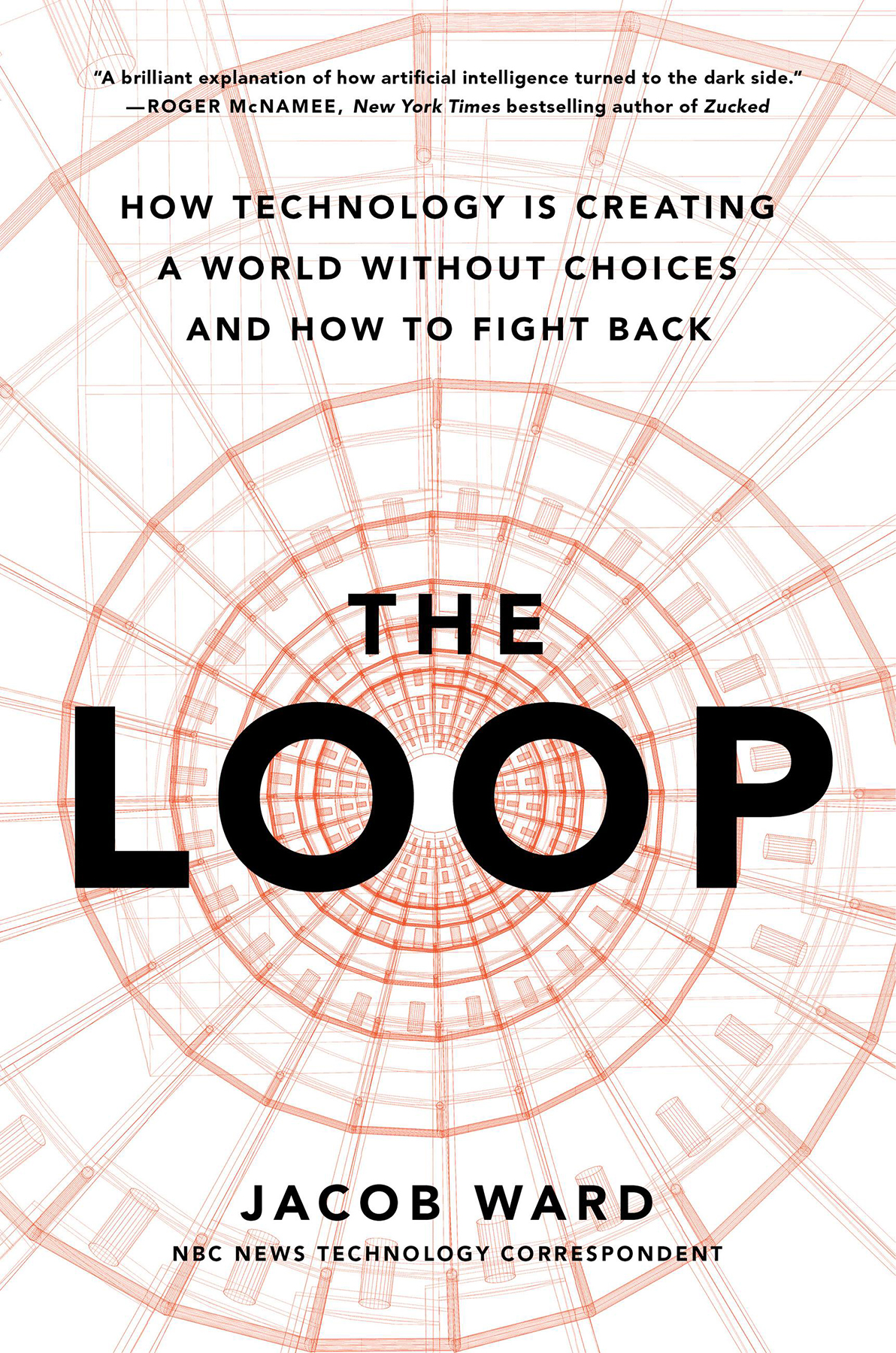
Certain names have been changed.
Copyright 2022 by Jacob Ward
Cover design by Amanda Kain
Cover image jani_arh/Shutterstock
Cover copyright 2022 by Hachette Book Group, Inc.
Portions of this book were originally published, in different form, on Mediums NewCo.
Hachette Book Group supports the right to free expression and the value of copyright. The purpose of copyright is to encourage writers and artists to produce the creative works that enrich our culture.
The scanning, uploading, and distribution of this book without permission is a theft of the authors intellectual property. If you would like permission to use material from the book (other than for review purposes), please contact permissions@hbgusa.com. Thank you for your support of the authors rights.
Hachette Books
Hachette Book Group
1290 Avenue of the Americas
New York, NY 10104
HachetteBooks.com
Twitter.com/HachetteBooks
Instagram.com/HachetteBooks
First Edition: January 2022
Published by Hachette Books, an imprint of Perseus Books, LLC, a subsidiary of Hachette Book Group, Inc. The Hachette Books name and logo is a trademark of the Hachette Book Group.
The Hachette Speakers Bureau provides a wide range of authors for speaking events. To find out more, go to www.hachettespeakersbureau.com or call (866) 376-6591.
The publisher is not responsible for websites (or their content) that are not owned by the publisher.
Library of Congress Cataloging-in-Publication Data
Names: Ward, Jake, author.
Title: The loop : how technology is creating a world without choices and how to fight back / Jacob Ward.
Description: First edition. | New York : Hachette Books, 2022. | Includes bibliographical references.
Identifiers: LCCN 2021034378 | ISBN 9780316487207 (hardcover) | ISBN 9780316487221 (ebook)
Subjects: LCSH: Artificial intelligence. | Brain. | Decision making.
Classification: LCC Q335 .W358 2022 | DDC 006.3dc23
LC record available at https://lccn.loc.gov/2021034378
ISBNs: 9780316487207 (hardcover), 9780316487221 (ebook)
E3-20211201-JV-NF-ORI
For Julie,
who saved me
For Josephine and Juniper,
who will save us all
On their way toward modern science human beings have discarded meaning. The concept is replaced by the formula, the cause by rules and probability.
Max Horkheimer and Theodor W. Adorno, Dialectic of Enlightenment , 1947 (trans. Edmund Jephcott)
WHENEVER OUR FUTURE on this planet looks bleak, we cant help but think about other planets. Weve spilled over our place in nature, and we cant seem to get along well enough to agree on our shared salvation. Lets go somewhere else and start over. How far away is the next habitable planet, anyway?
Interplanetary scientists despise the notion of translating light-years to a speed that you and I can grok as a number, the way we put a number to the speed of our own cars, so it always falls to journalists like me to thumbnail a best guess as to just how long it might take to carry us that same distance. Bear with me, please.
Our current rocket technology can propel a ship through space at speeds of roughly 20,000 miles per hour. By the standards you and I are used to, thats incredibly fast. In our own atmosphere the friction against the surrounding air at that speed would melt through any material weve invented and would incinerate you and me before we could even strike up a conversation about where we were going and what we wanted to build when we got there. But lets use that speed as a benchmark, because in space that speed is a terribly slow rate to cross the enormous distances between planets.
Mars, whose orbit is directly adjacent to our own, is the most survivable other planet in our solar system. But thats not saying much. Sure, other planets are more horrible. Piercing the thirty-mile layer of clouds that surrounds Jupiter, our rockets engines would begin to either choke or over-fire in its flammable nightmare of hydrogen and helium, and then would die completely as they hit the liquid form of the same stuff roughly 13,000 miles past the cloud cover that keeps us from knowing anything about whats beneath that poisonous ocean. That crew would drown (or maybe drown and burn, unheard of on Earth) without ever making it out of the ship.
Mars is comparatively pleasant. For one thing, theres stable footing. And a nice day on Mars might actually feel nice. With the sun high in the sky, youd enjoy temperatures as high as 68 F, a clear August afternoon in San Francisco or Johannesburg. But if you happened to exit the ship at one of the poles, at night, the temperature could be less than 200 F, cold enough to not only instantly kill you, but also almost instantly freeze your limbs into brittle branches that would shatter under a hammer blow. And lets not forget that even in the balmiest regions of the planet, theres nothing to breathe, so youre not getting far on even the most pleasant day. Youd bound perhaps fifty yards in the low gravity before you could no longer hold your breath, then hypoxia would disorient you, and you couldnt make it back to the oxygen of the ship. Youd wind up unconscious and twitching, your heart would stop, and the red dust would slowly settle around your corpse.
Thats why scientists and journalists alike are so excited about exoplanets, the term for planets beyond our solar system that seem to offer the possibility of a livable atmosphere and surface. Humanity has been treated in the last few years to a steady stream of optimistic fantasy destinations emanating from the now-defunct Kepler space telescope. Kepler essentially squinted out into deep space to see how light from distant stars bent around intervening planets too far away to image in any detail. Depending on how the light goes around a planet on its way to us, astrophysicists can calculate not only the size of that planet, but how far it is from the source of light, meaning we can determine whether the relation between the planets size and the distance to its star possibly indicates that planet might host some sort of atmosphere.
The Kepler mission measured the light from roughly 150,000 stars and found several hundred planets whose ratio of size and star-distance makes them candidatesjust candidates, but a real possibilityfor human respiration and occupancy. Land, walk around, build a cabin out of whatever materials exist, just imagine! And when we consider the vast distances of space, the closest exoplanets are, in fact, relatively close.
But before we pop the champagne and pour our savings into SpaceX, lets think about what it takes to get to another planet. A trip to Mars, for instance, is comparatively brief. Depending on where it and Earth are in their orbits, the journey could be made in between three hundred and four hundred days. But humans have never traversed open space for that amount of time. The journey to the moon currently takes about seventy-two hours, and astrophysicists and medical experts quietly point out in private conversation that its a miracle none of the two dozen people who went to the moon died during the trip. A trip to Mars would involve exposing the crew to the dangers of deep space for roughly a full year. And those dangers go on and on. Deadly amounts of radiation permeate everything in the deep blackness between planets. Space is full of dirt and grit that could disable the ship. (A whole field of astrophysics studies the interstellar medium and has shown that if you held a gloved white hand out the window of the ship as one does on the highway, it would come back blackened by, well, whatever it is thats out there.) Also consider that if a mishap killed the ship and the crew, the event would be torturously broadcast, on time delay, to the whole of Earth, presumably killing off our species desire to travel to Mars in the process.


